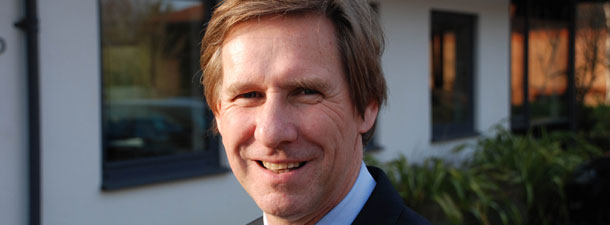A businessman in Hampshire is to help highlight the plight of impoverished farmers in an African country deeply scarred by genocide.
Graeme Quar undergoes a 12-day fact-finding mission in Rwanda on behalf of a development charity, Send a Cow, he passionately supports.
His role will be to visit projects where the charity is making a positive difference on the ground, providing livestock and land management training to struggling families.
Graeme, the managing director of Fareham-based commercial law specialist Graeme Quar & Co, will then provide a report to the charity’s trustees in the UK.
The lawyer has previously visited Ethiopia, Lesotho and Kenya in similar capacities.
Rwanda became infamous in 1994 when ethnic tensions erupted into unspeakable acts of violence on an industrial scale, with one million people killed, women systematically violated, families left homeless and much of the country’s soil-enriching livestock destroyed.
Graeme, who flies into Rwanda on May 20th, said: “There is now a lot of transformational work going on. Communities fractured by fear after the genocide are now finding common goals in Send a Cow projects.
“Widows, orphans, disabled people and those with HIV/Aids are discovering they can make a living – and by doing so earn the respect of their wider communities.
“Their success speaks for itself; families are growing food, communities are coming together and the national government is adopting Send a Cow’s approach right across the country.
“It is clear that donations from people in the UK are making a lasting difference to families in Africa.
“The original donation grows in significance as calves, seeds and training are passed on to neighbours in need – under the multiplier effect, nine people go on to benefit for each original recipient.
“No doubt the fact-finding visit to Rwanda will be a humbling, poignant, uplifting and sometimes disturbing experience, taking me very much out of my comfort zone.”
Send a Cow places a special focus on social development work in Rwanda, helping neighbours from different ethnic backgrounds come together.
Training by the charity in conflict resolution and democratic ways of working is vital to the success of its projects, added Graeme.
The charity provides a dairy cow or dairy goat to poor families in Africa, alongside training in animal husbandry and welfare and veterinary support.
Animals provide nutritious milk and manure to grow vegetables, feeding the family and allowing surplus to be sold to generate income which is often used to buy pens, books and uniforms for school.
This year nearly 14,000 families are being helped by Send a Cow.
For more information on how you can make a tangible difference for just a few pounds or more visit www.sendacow.org.uk





















